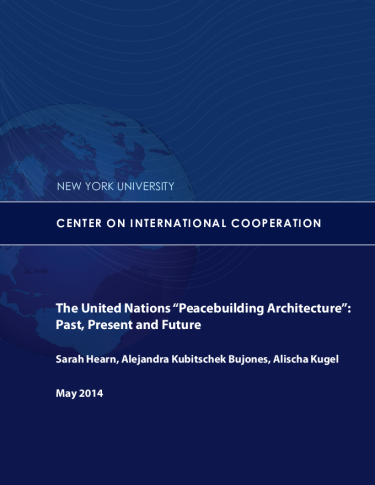There is a broad agreement that the United Nations’ “Peacebuilding Architecture” (PBA) has failed to live up to the high hopes that existed when the 2005 World Summit agreed to establish the Peacebuilding Commission (PBC) and its related entities, the Peacebuilding Support Office (PBSO) and the Peacebuilding Fund.
This short paper explores why this is the case, and the options currently on the table to revitalize the PBA. In this context, we briefly review the initial logic and expectations of the PBA, and sketch out the factors that have affected the PBA’s impact both positively and negatively. We then assess the state of the debate, the options, and the political capital and pathways leading into a planned 2015 review of the PBA by the General Assembly and the Security Council.
The ambition for this paper is simply to stretch and challenge countries’ and UN thinking on ambition for the 2015 review of the PBA. If we take as a starting point that no country or UN department wants to continue “business as usual,” we aim to put the key issues and considerations on the table to hopefully inform a constructive debate on the scope and ambition for countries entering debate on the 2015 review. The purpose of doing so is to encourage a debate on the logic upon which the PBC and PBSO currently operate, and to facilitate finding a pathway that ultimately helps bring closure to the circular discourse that has emerged on the “value-added” of the PBA.


